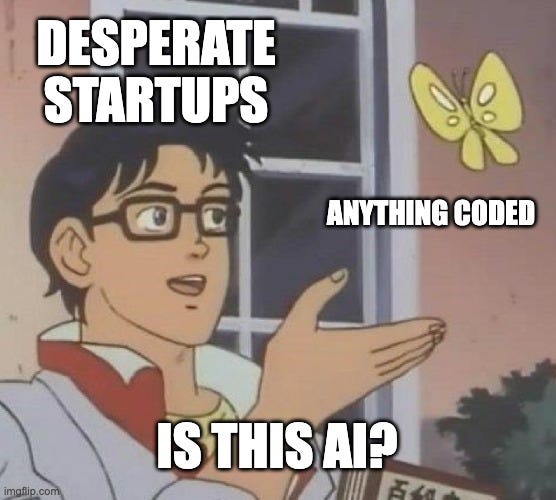AI is about to revolutionize the organ transplant system.
Plus, here are all the losers falling behind ChatGPT in the AI chatbot race.
In today’s email:
AI is about to save tens of millions of dollars (and hundreds of lives) with organ transplants.
A look into the top tech companies and their answers to ChatGPT.
An incredible AI art series featuring aliens that I would absolutely chill with.
😎 3 Cool Things
Manage your emails better with this smart assistant.
Follow us on Instagram and maybe I’ll create more content there.
This “Midnite on Mars” AI art series is absolutely beautiful.
🤓 2 Big Stories About AI
1. Artificial intelligence being used to help with organ donation.
A new method to assess the quality of organs for donation is set to revolutionize the transplant system – and it could help save hundreds of lives and tens of millions of dollars.
The 🥩 of it:
A new technology called Organ Quality Assessment (OrQA) is being developed to assess the quality of organs for donation using AI-based facial recognition.
The National Institute for Health and Care Research (NIHR) is contributing more than $1 million in funding to develop this technology.
OrQA could result in up to 200 more patients receiving kidney transplants and 100 more receiving liver transplants a year in the UK.
The software developed will evaluate the quality of the organ and support surgeons to assess if the organ is healthy enough to be transplanted, resulting in more patients receiving life-saving transplants and leading healthier, longer lives.
The technology will use thousands of images of human organs to assess images of donor organs more effectively.
The project is supported by NHS Blood and Transplant, Quality in Organ Donation biobank, and an NIHR Blood and Transplant Research Unit, and involves academics from the Universities of Oxford and New South Wales.
It is hoped the OrQA software will be ready for a licensing study within the NHS within two years.
Proof of concept work has been carried out in liver, kidney and pancreas transplantation, and OrQA is at an advanced stage of pre-clinical testing in liver and kidney.
2. Here are the top companies trying to compete with ChatGPT.
From Google’s Bard to Microsoft’s new Bing, there are a lot of major contenders in the AI chatbot space. The Verge has a great breakdown of the top contenders, so I’ve created a breakdown-of-a-breakdown. Big brain shit.
Microsoft
Microsoft has recently launched its chatbot inside "new Bing", which promises to revolutionize online searches. Microsoft leveraged the technology behind OpenAI's ChatGPT to build the new Bing after investing $10 billion into the AI startup. Some beta testers found exploits in the AI, resulting in some bizarre responses that we covered a few weeks back. Microsoft reacted by introducing some restrictions, but later lifted some of them due to user complaints. Microsoft plans to add AI enhancements to Edge that will allow users to summarize web pages or documents and generate text for social media posts and emails.
Google
Google announced its own AI chatbot named Bard, powered by its in-house large language model, LaMDA. The service draws information from the web to provide responses and can be used for various tasks. However, Google's announcement was criticized for being haphazard, and Bard made a factual error during the first demo. Currently, the chatbot is only available to a limited test group, with wider availability expected in the coming weeks.
Meta
Meta, the company that owns Facebook, Instagram, and WhatsApp, developed an AI language model called Galactica to provide assistance to scientists and researchers. However, when the bot was made available in a public beta last November, it produced disappointing results and was criticized by the scientific community for its incorrect or biased responses. Meta also created BlenderBot 3, which is supposed to act like a digital assistant, but received poor reviews. Meta plans to establish a dedicated AI team that will create "AI personas" and text- and image-based AI tools for its platforms in the future.
You.com
You.com is a search engine developed by former Salesforce employees that features an AI-powered chatbot called YouChat. The bot can generate annotated answers, summaries of articles, and even code and essays. You.com recently added AI image generator models, letting users generate images based on written descriptions. The search engine breaks down results based on relevant responses on sites like Reddit and Wikipedia, while providing standard results from the web.
Alibaba
Alibaba is reportedly developing its own AI chatbot, similar to ChatGPT, but the company has not announced when it will be released or what it will be capable of. However, Chinese regulators have told Alibaba-owned Tencent and Ant Group to restrict access to ChatGPT, citing concerns over uncensored content, and any other Chinese companies developing AI chatbots will also have to consult with the government before making them available to the public due to China's strict censorship rules.
Baidu
Chinese company Baidu is set to launch its AI tool, Ernie Bot, as early as March. The tool, which first appeared in 2019 and has since evolved into a ChatGPT-like system, can generate conversational responses, and Baidu plans to integrate it into its search engine and an electric vehicle made by Chinese startup Jidu. Baidu is also developing a text-to-image model, called Ernie ViLG, to create images based on Chinese text.
🤣 1 LOL
I’ve been seeing a lot of simple web apps throw the word “artificial intelligence” into their product to ride the AI wave. Thanks, I hate it.




